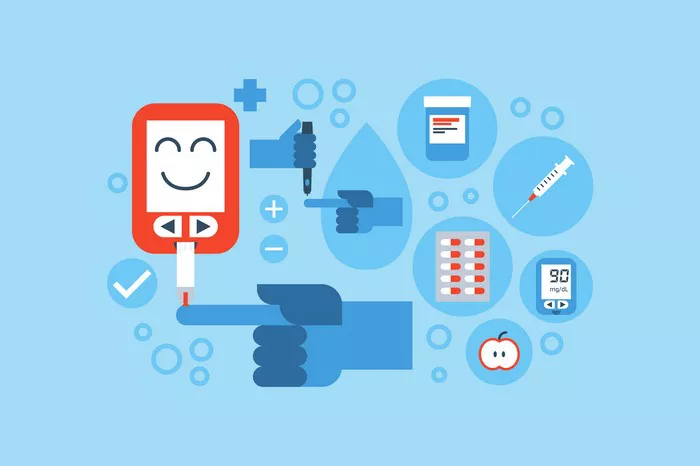The 1-hour glucose test, also known as the glucose challenge test (GCT), is a preliminary screening test used to assess glucose tolerance and detect potential gestational diabetes mellitus (GDM) during pregnancy.
This article aims to provide a comprehensive understanding of what the 1-hour glucose test entails, its purpose, procedure, interpretation of results, and its significance in prenatal care.
Understanding Gestational Diabetes Mellitus (GDM)
Gestational diabetes mellitus (GDM) is a form of diabetes that develops during pregnancy, typically around the 24th to 28th week. It occurs when the body cannot produce enough insulin to meet the increased demands of pregnancy, leading to elevated blood sugar levels.
GDM poses risks to both the mother and the baby, including macrosomia (large birth weight), preterm birth, and cesarean delivery.
Purpose of the 1 Hour Glucose Test
The primary purpose of the 1-hour glucose test is to screen for gestational diabetes by assessing how the body processes glucose. It serves as an initial step in identifying women who may have elevated blood sugar levels and require further testing to confirm a diagnosis of GDM.
Early detection and management of GDM are essential for minimizing the risk of complications during pregnancy and childbirth.
Procedure
The procedure for the 1-hour glucose test is relatively simple and non-invasive. It typically involves the following steps:
1. Preparation:
Prior to the test, the pregnant individual may be instructed to fast for a certain period, usually between 8 to 12 hours, to ensure accurate results. However, fasting requirements may vary depending on the healthcare provider’s protocol.
2. Glucose Solution:
Upon arrival at the healthcare facility, the individual is given a glucose solution to drink. The solution contains a predetermined amount of glucose, typically 50 grams, dissolved in water. The taste of the solution may vary, ranging from sweet to slightly unpleasant.
3. Blood Draw:
Exactly one hour after consuming the glucose solution, a blood sample is drawn from the individual to measure their blood sugar level. The blood sample is usually obtained via a simple finger prick or venipuncture.
4. Waiting Period:
Following the blood draw, the individual may be asked to remain in the waiting area for the duration of the test. It’s essential to stay hydrated and avoid strenuous physical activity during this time.
5. Interpretation of Results:
After one hour has elapsed, the blood sugar level is measured. The results are then interpreted based on predetermined cutoff values established by healthcare organizations or guidelines. Elevated blood sugar levels may indicate the need for further testing to confirm a diagnosis of gestational diabetes.
Interpretation of Results
The interpretation of results from the 1-hour glucose test is typically based on established cutoff values for blood sugar levels. While specific cutoff values may vary between healthcare providers and guidelines, a blood sugar level above the designated threshold is considered abnormal and may warrant additional testing.
Significance in Prenatal Care
The 1-hour glucose test plays a crucial role in prenatal care by identifying women at risk of gestational diabetes and facilitating timely intervention and management.
Early detection of GDM allows healthcare providers to implement appropriate dietary and lifestyle modifications, closely monitor blood sugar levels, and provide necessary medical interventions to optimize maternal and fetal health outcomes.
Conclusion
In conclusion, the 1-hour glucose test is a valuable screening tool used in prenatal care to assess glucose tolerance and detect potential gestational diabetes mellitus.
By identifying women with elevated blood sugar levels early in pregnancy, healthcare providers can implement timely interventions to minimize the risk of complications and ensure the best possible outcomes for both mother and baby.
As with any medical test, it’s essential to follow healthcare provider recommendations and undergo further testing if indicated based on the results of the 1-hour glucose test.



























